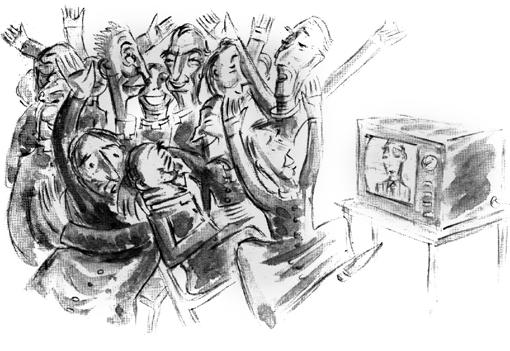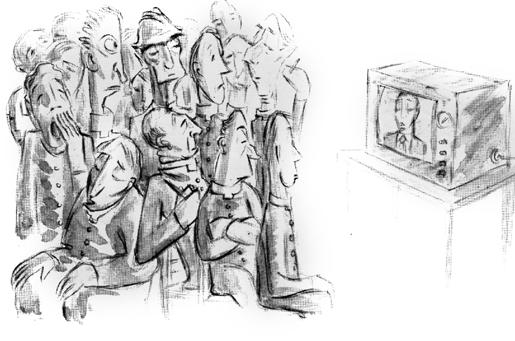
3 minute read
Chairman’s Message
Cause for optimism
Joseph Shaw on life under Traditionis Custodes
The Foederatio Internationalis Una Voce (FIUV, or Una Voce International) held its two-yearly General Assembly, online, on Saturday 2 October. It was attended by twenty member associations from North and South America, Africa, Asia, and Europe. It was sobering to hear their experiences of life under Traditionis Custodes, but there was cause for optimism too. As Diane Montagne has observed, bishops demanding new controls over the Traditional Mass tend to be those, like many in Italy, who already had it so well under control that it was not being celebrated at all. Bishops where the Traditional Mass was relatively widespread generally have no wish to prune it back.
At this same meeting, a new Council and President was elected. I have been either Secretary or Treasurer of the Federation since 2013, and this time the lot fell to me to be President. I will continue to be Chairman of the Latin Mass Society; collaboration between the two organisations has always been close. I am very grateful to my predecessor as President, Felipe Alanís Suarez, of Una Voce Mexico, and to all my colleagues in the Federation’s Council, for their help. It is in the nature of the organisation that the Treasurer is based in Germany and the Secretary in South Africa, and other important roles are played by Councillors in Vancouver and Moscow. Fortunately for me, the common language of the Federation is English.
Although the Federation taking the concerns of Traditional Catholics worldwide to the Holy See, and advising local Latin Mass groups, is usually done without fanfare, it has in recent years developed its public face. It has a twice-yearly magazine, Gregorius Magnus, a twitter account, @unavoceofficial, a Facebook page, a YouTube channel, and a website (www.fiuv.org). I encourage readers to consider becoming a “Friend” of the Federation, making a small annual donation. Many member associations are very poor, and cannot make a financial contribution to the Federation’s work.
While talking to officials in Rome may be less useful than usual right now, the public-facing work of the Federation is especially important. It seems the justification for world-wide restrictions on the Traditional Mass, with the stated aim of its eventual banning, is based on perceptions of the situation in a very small number of countries, and it is through the Federation that the existence of the Traditional movement as a truly world-wide phenomenon can be made clear, in Rome, on English-language social media, and to everyone.
One senior official of the Congregation for the Doctrine of the Faith explained the necessity for Traditionis Custodes by reference to “the U.S., France and England” (Archbishop Di Noia, interview with the Catholic News Service, 20 July 2021.) Pope Francis, addressing an ad limina visit by French bishops on 10 September, cited problems in “the United States, Switzerland, and a little in France”.
What exactly is supposed to be going on in these places is not, alas, specified, but, in any case, why does this justify making life difficult for Catholics attached to the Traditional Mass in Nigeria, the Philippines, or Peru? I don’t think the people formulating and defending this policy have given those countries much thought, nor even places such as Poland, Germany, Scotland, and Canada, where there are a good number of Traditional Mass celebrations, apparently without difficulties.
It is clearly vital at this juncture to make the point that the Traditional Mass is not, and never has been, the preserve of the United States of America plus one or two Western European countries.
I illustrate this Chairman’s Message with a cartoon from Fr Hubert Van Zeller, perhaps inspired by the situation of the People’s Republic of China. Because of the persecution of the Church under Communism, the liturgical reform came to China twenty years late, and even then the old and the new Mass coexisted quite happily for some time. Today a vigorous movement for the preservation of the Traditional Mass in China exists, insisting on the continued relevance of the Mass which brought the Faith to China five centuries ago. Please spare a prayer for our persecuted brothers in Christ, that they may receive the consolation of the liturgy which has sustained so many martyrs.

'It has been confirmed that there is human life on the planet Saturn...

... where they are still saying the Traditional Latin Mass.'










